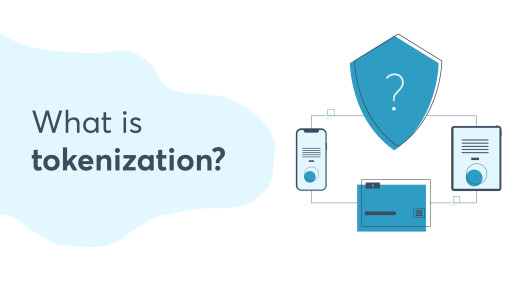Did you know over 25 billion electronic payment transactions happen every year in the United…

Secure Payments with Network Tokenization Explained
Did you know that network tokenization is revolutionizing secure payment processing?
Network tokenization are a payment card tokenization service offered by major payment networks like Mastercard, Visa, American Express, and Discover. It replaces primary account numbers (PANs) and other card details with tokens provided by the card brands.
This innovative technology brings numerous benefits to businesses and consumers alike. With network tokenizations, payment methods update in real-time, ensuring that cardholder credentials remain current even if the physical card is locked or expired. It simplifies fraud management, enhances authorization rates, and improves the overall customer experience.
But how exactly does network tokenization enhance payment security? And why is it crucial for businesses to adopt this technology? Let’s explore in more detail.
Key Takeaways:
- Network tokenizations are a payment card tokenization service offered by major payment networks such as Mastercard, Visa, American Express, and Discover.
- Network tokens replace primary account numbers (PANs) and other card details with tokens provided by the card brands.
- With network tokenizations, payment methods update in real-time, ensuring that cardholder credentials remain current even if the physical card is locked or expired.
- Network tokenizations enhance payment security by reducing the risk of data breaches and simplifying fraud management.
- By adopting network tokens, businesses can streamline recurring payments, protect against transaction failures, and optimize checkout conversion.
How Network Tokenization Enhances Payment Security
Network tokenization plays a crucial role in enhancing the security of payment transactions. By leveraging network tokenization services, businesses can implement robust tokenization strategies and best practices to ensure data security solutions are in place.
One of the key advantages of network tokenization is its ability to eliminate the transmission and revelation of primary account numbers (PANs) during a transaction. This greatly reduces the risk of data breaches, as network tokens replace PANs with unique tokens provided by major payment networks such as Mastercard, Visa, American Express, and Discover.
Each network token is domain-specific, meaning it is limited to a single device, merchant, channel, or transaction type. This ensures that even if a token is intercepted, it can only be used within its defined domain, adding an extra layer of security.
Enhanced Authorization and Reduced Declines
Transacting with network tokens offers substantial benefits, including an average 2.1% authorization lift for card-not-present transactions. This significant increase in authorization rates helps reduce declines caused by expired cards, fraudulent activities, or lost card details.
Additionally, network tokens eliminate declines due to expired account details since they do not expire. This feature improves security for card-on-file accounts, creating a seamless payment experience for customers while minimizing the risk of unauthorized access.
Cost Savings and Simplified Compliance
This topic also proves to be cost-effective in the fight against fraud. By mitigating the impact of malware, data breaches, and phishing attacks, businesses can significantly reduce the financial losses associated with fraud.
Adopting network tokens allows businesses to streamline recurring payments, protect against transaction failures, and optimize checkout conversion. The ability to process transactions securely and efficiently brings substantial operational benefits.
Moreover, network tokenization simplifies PCI compliance for merchants. By replacing sensitive card details with non-sensitive tokens, businesses reduce security overhead while effectively protecting customer data.
To sum up, network tokenization, with its advanced tokenization technology, offers robust security solutions for payment transactions. By leveraging network tokenization services, businesses can enhance payment security, reduce the risk of data breaches, and ensure compliance with industry standards.
Conclusion
Network tokenization is revolutionizing secure payment processing and data security solutions. This transformative technology enhances payment security, reduces fraud, and improves the overall customer experience. By replacing sensitive card details with network-issued tokens, network tokenization minimizes the risk of data breaches and keeps cardholder information safe.
One of the key benefits of network tokens is their ability to provide persistent and up-to-date payment credentials. Ensuring reduced declines from expired or inactive cards smooths payment transactions. Additionally, merchants save costs with tokenized networks due to lower interchange rates.
In addition to enhancing security and reducing costs, network tokenization streamlines recurring payments and guarantees a reliable revenue stream for businesses. This technology simplifies the payment process, protects against transaction failures, and optimizes checkout conversion. With its built-in security features and compliance benefits, network tokenization has become an essential tool for businesses seeking secure payment processing and robust data protection.



Comments (0)